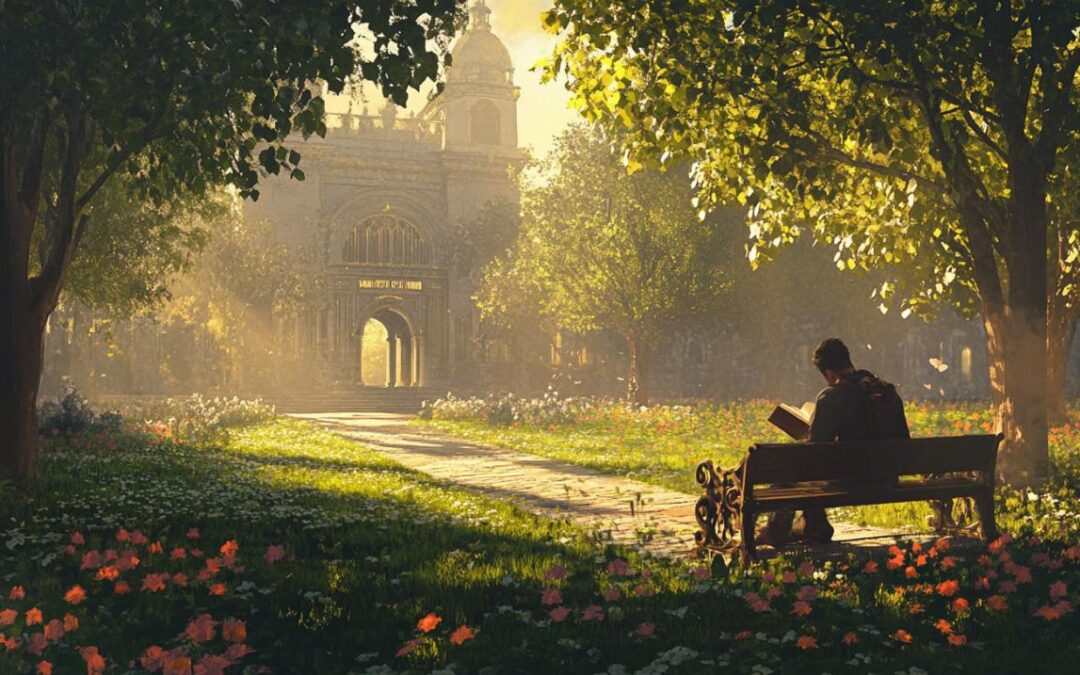When we sit down with a good book or ponder the great questions that have puzzled humanity for centuries, we often find ourselves at the crossroads where philosophy and literature meet. This intersection is not merely academic but profoundly personal, inviting us to explore our own beliefs, values, and understanding of existence. The written word has always been a vessel for the deepest inquiries into human nature, morality, and the meaning of life itself. Whether through the pages of ancient texts or modern novels, these two disciplines continue to shape how we perceive ourselves and the world around us.
The intricate dance between philosophical thought and literary expression
Throughout history, philosophy and literature have existed in a relationship of mutual enrichment. Writers have long drawn upon philosophical ideas to deepen their narratives, while philosophers have used literary devices to communicate complex concepts in ways that resonate with broader audiences. This symbiotic relationship reveals how storytelling and abstract reasoning are not opposing forces but complementary methods of understanding reality. When we read a novel or a poem, we are not simply absorbing a plot or admiring language; we are engaging with the author’s perspective on existence, truth, and human experience.
How great thinkers have shaped literary narratives throughout history
The influence of philosophical thought on literature is evident from the earliest recorded works. Consider how Plato viewed art and poetry as mere imitations of the real world, arguing that they could not provide genuine knowledge. He believed that creative works were copies of reality, twice removed from the true forms that exist in the realm of ideas. This scepticism extended to his concerns about the moral impact of literature, as he worried that poets and dramatists might mislead people, diverting them from truth and virtue. For Plato, such works needed to be carefully regulated to prevent them from corrupting society. Despite his reservations, his critique has sparked centuries of debate about the purpose and power of artistic expression.
In contrast, Jean-Paul Sartre embraced literature as a form of active engagement with the world. For Sartre, writing was not a detached activity but a means of participating in social and political life. He believed that authors had a responsibility to address pressing issues and contribute to positive change. Moreover, Sartre argued that readers themselves become participants in this commitment when they engage with a text, transforming the act of reading into a shared endeavour. Both Plato and Sartre recognised that literature reflects the beliefs and desires of its creators and audiences, even if they differed sharply in their views on its value and purpose.
These historical perspectives reveal how literary narratives have been shaped by philosophical inquiry. Writers have continually grappled with questions about the nature of reality, the role of art in society, and the ethical responsibilities of storytelling. This ongoing dialogue has enriched both disciplines, ensuring that literature remains a vital space for exploring profound ideas. From the allegories of ancient Greece to the existential novels of the twentieth century, philosophical thought has left an indelible mark on the stories we tell and the meanings we derive from them.
The Role of Existential Questions in Contemporary Fiction
Modern literature continues to wrestle with existential questions, reflecting the anxieties and aspirations of our time. Novels, short stories, and poems frequently delve into themes of identity, freedom, and the search for meaning in an increasingly complex world. Authors use their work to explore how individuals navigate uncertainty, confront mortality, and seek purpose amidst the chaos of everyday life. This preoccupation with existential themes is not confined to highbrow or experimental fiction; it permeates mainstream works as well, demonstrating the universal appeal of these questions.
Contemporary fiction often mirrors the philosophical debates that have occupied thinkers for generations. Writers examine how humans perceive reality, questioning whether our experiences and interpretations offer a true understanding of the world. This inquiry into the nature of perception and truth is central to both philosophy and literature, highlighting the shared concerns of these fields. By presenting different authorial perspectives, novels and poems invite readers to consider multiple viewpoints and challenge their own assumptions. In this way, literature becomes a tool for self-reflection and intellectual growth, encouraging us to think critically about the stories we encounter and the lives we lead.
The engagement with existential questions in contemporary fiction also underscores the enduring relevance of philosophical thought. As society evolves and new challenges emerge, literature adapts to address the concerns of each generation. Whether exploring the alienation of modern life, the impact of technology on human connection, or the struggle for authenticity in a conformist world, writers continue to draw upon philosophical traditions to illuminate the human condition. This dynamic interplay ensures that literature remains a powerful medium for exploring the big questions that define our existence.
Finding meaning through words: a personal journey into deep reflection
 For many readers, literature offers more than entertainment or escape; it provides a pathway to deeper understanding and personal growth. When we immerse ourselves in a well-crafted story or a thought-provoking essay, we are invited to embark on a journey of introspection and discovery. This process is inherently philosophical, as it involves questioning our beliefs, examining our values, and seeking answers to the fundamental questions of life. The act of reading becomes a form of dialogue, both with the text and with ourselves, fostering a richer and more nuanced appreciation of the world.
For many readers, literature offers more than entertainment or escape; it provides a pathway to deeper understanding and personal growth. When we immerse ourselves in a well-crafted story or a thought-provoking essay, we are invited to embark on a journey of introspection and discovery. This process is inherently philosophical, as it involves questioning our beliefs, examining our values, and seeking answers to the fundamental questions of life. The act of reading becomes a form of dialogue, both with the text and with ourselves, fostering a richer and more nuanced appreciation of the world.
Why readers turn to literature when seeking life’s purpose
In moments of uncertainty or transition, people often turn to books for guidance and solace. Literature has a unique ability to articulate the complexities of human experience, offering insights that resonate on a deeply personal level. Whether grappling with loss, searching for direction, or simply trying to make sense of a chaotic world, readers find comfort and clarity in the words of others. This is because literature does not provide simple answers or prescriptive solutions; instead, it presents nuanced explorations of life’s challenges, allowing readers to find their own meanings and truths.
The search for purpose is a timeless endeavour, and literature serves as a companion on this journey. Through the experiences of fictional characters and the reflections of poets and essayists, readers encounter diverse perspectives on what it means to live a meaningful life. These narratives and meditations encourage us to reflect on our own choices, relationships, and aspirations. They remind us that we are not alone in our struggles and that the quest for meaning is a universal aspect of the human condition. By engaging with literature, we participate in a centuries-old conversation about what it means to be human, drawing wisdom from the past while navigating the present.
Moreover, literature fosters empathy and understanding by exposing readers to lives and experiences different from their own. This broadening of perspective is essential for personal growth and for developing a more compassionate and informed worldview. When we read about characters facing moral dilemmas or philosophical crises, we are prompted to consider how we might respond in similar situations. This imaginative engagement strengthens our capacity for critical thinking and ethical reasoning, equipping us to navigate the complexities of our own lives with greater insight and sensitivity.
Engaging with Timeless Questions Through the Pages of Classic and Modern Works
Both classic and contemporary literature offer rich opportunities for engaging with timeless philosophical questions. The great works of the past, from the tragedies of ancient Greece to the novels of the nineteenth century, continue to resonate because they address fundamental aspects of human existence. These texts invite us to consider enduring themes such as justice, love, mortality, and the nature of the good life. At the same time, modern works bring fresh perspectives to these questions, reflecting the unique challenges and possibilities of our era.
Reading widely across different periods and genres allows us to appreciate the continuity and evolution of human thought. A classic work might introduce us to ideas that have shaped Western philosophy for millennia, while a contemporary novel might challenge those ideas or apply them in new contexts. This dialogue between the old and the new enriches our understanding and demonstrates that the quest for meaning is an ongoing process. It also highlights the versatility of literature as a medium for philosophical exploration, capable of addressing profound questions in ways that are both intellectually rigorous and emotionally compelling.
For those interested in delving deeper into these topics, educational resources are widely available. Free courses introduce learners to the Classical world, covering subjects such as philosophy, historical sources, and ancient geography. These courses typically require around twenty hours of study at an intermediate level and offer materials in various formats, including Word, Kindle, PDF, Epub, RSS, HTML, OUXML, and IMS CC. Completing such courses can lead to a statement of participation, providing recognition for the effort invested in expanding one’s knowledge. Many platforms also offer newsletters with updates on new courses and content, ensuring that learners stay informed about the latest opportunities for intellectual growth. Additionally, online communities and blogs dedicated to philosophy and literature, such as Mindblown, provide spaces for discussion and exploration. These platforms, often powered by WordPress, allow enthusiasts to share recommendations and insights, fostering a sense of connection among those who seek to engage with life’s deepest questions. For personalised suggestions, many of these sites offer the option to contact contributors directly, making it easier to discover works that align with individual interests. In this way, The Englishman store and similar resources serve as gateways to a richer and more fulfilling engagement with the world of ideas.

